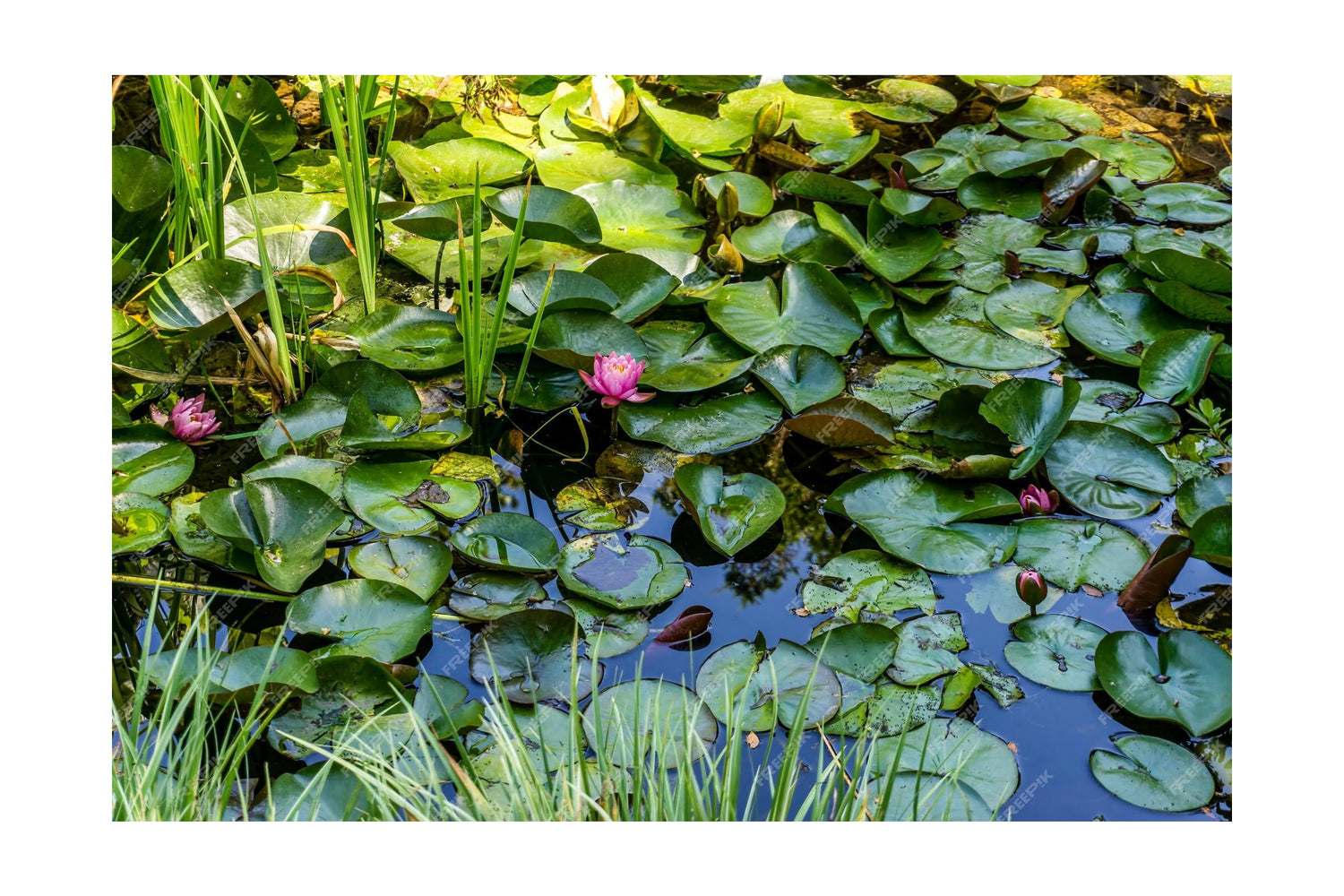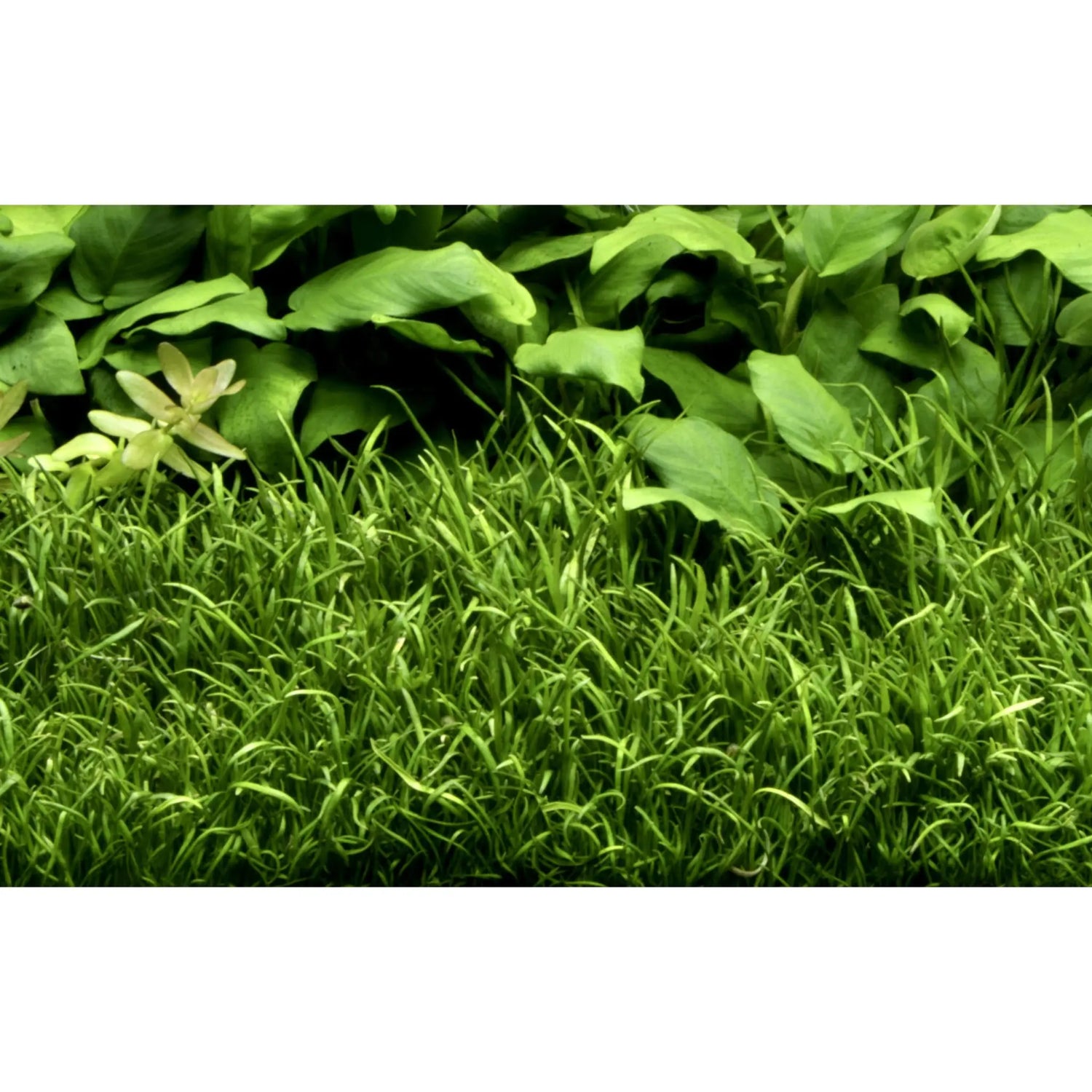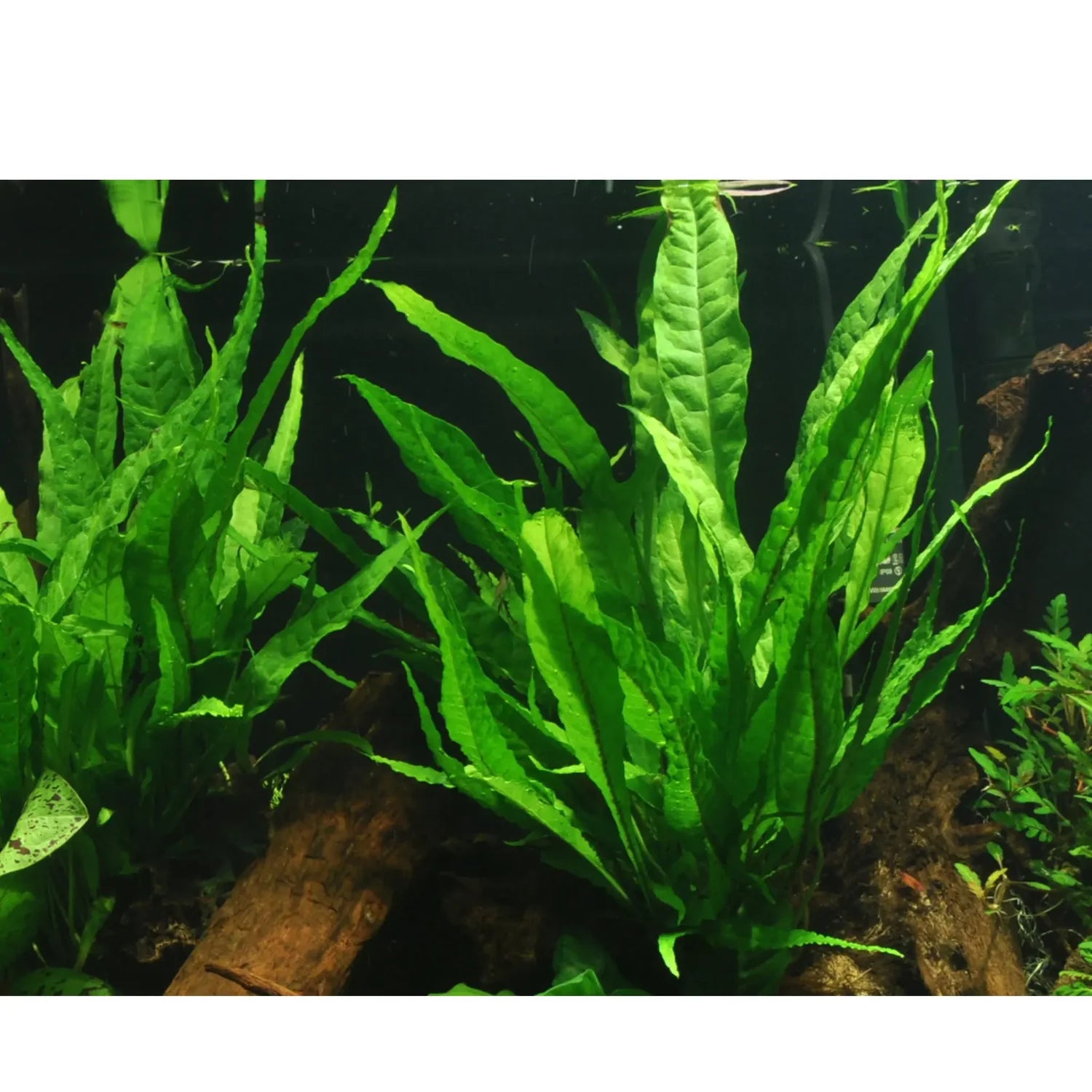So your wonderful plants have arrived from us and you’re wondering (perhaps) what to do with all the cuttings/trimmings you get from your plants. Some will grow really fast and rather than chucking them in the compost bin, you could propagate them. This is essentially what commercial growers do and what you can do too - it’s fairly simple for plants that live under water (above water is slightly harder but that’s something for another day!). Let’s assume you have a nice stem like this one (Alternanthera reineckii).
This plant grows pretty quickly and as soon as it’s getting a bit too long, hack it in half and I mean literally in half. Chopping it 50% at a time makes the plant grow very bushy and more attractive, and whatever you trim back simply plants straight into the substrate - it’s as simple as that. You can take cuttings from the side of stem plants but they are never as strong as the one’s from the top. Wherever you do trim, you’ll get a couple of buds forming there and this is why the plant can become very bushy as every time you trim, two more buds form.
Other plants will have what’s called Advantageous Plantlets. This asexual reproduction occurs when small plantlets form on the main plant - I see this quite a lot with plants from the Bacopa family. Let them grow for a while so they are a good couple of inches long and then cut them off with a pair of scissors and replant. I’ve found if you do this when they are too young and too short, they melt and die so give them a bit of time to grow and get strong.
Another asexual way of reproduction you may see with your plants is what’s known as offsets. This very simple method is similar to runners (which is when the plant literally throws off runners), except offsets grow off the main part of the plant but in particular , exceptionally close to it - they don’t wonder like runners do. You can pick offsets off the plant and then place them into your substrate and away they go! Again, don’t pick them when they are too young as they may die off. Similarly if you let them grow for longer they quite often fall off on their own, land in the substrate and then start growing again.
Biology lesson over :)






